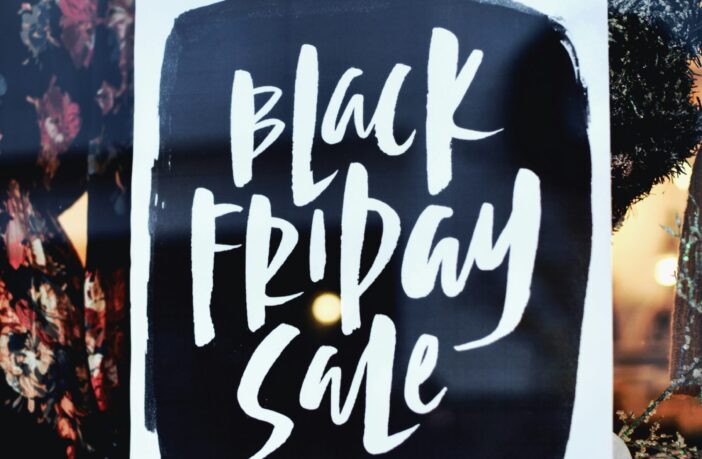In a consumerist age, 10 members of the “Unfit Christian” congregation share whether the Messiah would hit up the sales.
Every major religion has its holy days. But for some folks, maybe Black Friday — the annual ritualistic shopping day on the Friday following Thanksgiving — should be added to the list.
Shoppers who head out before dawn for gift-giving bargains are unique unto themselves, enjoying the season, loving the camaraderie with like-minded revelers, and willing to drive to tried and true shopping spots. But some see the day as being steeped in America’s not-so-spiritual devotion to materialism.
“We like to think this is a secular holiday. But let’s not kid ourselves. Black Friday is drunk with religion. It’s a sacred day—sacred, at least, in the faith which it embodies and inculcates: the religion called Consumerism,” author Chad Bird wrote a few years ago for the1517, a nonprofit Christian organization.
It all begs the question: Would Jesus have bowed his knee and joined Black Friday congregants at the temple of “Ooh, got to have it” to buy presents for others celebrating his birthday?
We posed the question to the Unfit Christian Congregation, a FB group led by “Passah” Danyelle Thomas — and its members had plenty of thoughts on the issue.
For many, Black Friday is a yearly pilgrimage to favorite stores to score the best deals, but others see a darker aspect–the creeping influence of materialism. (Photo courtesy Unsplash/ Tim Mossholder)
Black-Owned, Giving Back
Member Adrienne Garr figured Jesus would “totally be at Old Navy getting flip flops and at Bath and Body Works picking up oils and soy candles.
Lenee Rucker thought he might shop if “all the profits earned went to the women and children’s fund and the business, in exchange, got the tax write-off.”
Member Lisa D. Bennett replied that Jesus would shop “with the intention of buying the most at the best price for those individuals and organizations in need.”
And Sheila P. Spencer wrote that we wouldn’t see Jesus “shopping at major department stores or franchise chains.” Instead, he’d purchase presents from Black-owned businesses — bookstores, candle makers, artists, and craftspeople.
Shopping at small Black businesses also won out with Antoinette C. Corbin. Jesus “would patronize small Black businesses, purchasing household and personal needs for low-income families. He would pay special attention to the homeless, elderly and orphaned children.” she wrote.
Angela Parker wrote that Jesus wouldn’t buy anything for himself. But, “I could definitely see him going out into the crowd for sure. I see him being one of the folks that went out for the thrill of it all,” she explained.
Another “of course” came from member Donna Ranae, who suggested that “if we are made in his image, then he’s the reason we hit them sales up too. He’s the originator, at least in my mind.”
But he would be particular about what he bought, according to Chris Bey.
”I don’t think he would shop for electronics and luxuries in the sense that we think of Black Friday deals,” Bey responded. “I think he would lean into service for poor and marginalized as the cold winter season sets in, so any shopping would be to purchase essentials for those in need—food, clothing, etc. The needs in our community are great right now so there is always a need for service.”
No, Jesus Would Not Be Shopping
On the other hand, congregation member Jana Coke declared that Jesus wouldn’t be shopping, and he certainly wouldn’t be shopping on Amazon.
“I think Jesus would distribute what was left from the Thanksgiving dinner in a ‘Buy Nothing Group’ on Facebook,” she wrote.
Along the same vein, Onyeka Onyx Uzomah wrote that Jesus would not spend Black Friday “supporting the capitalist machine that has us thinking we need to be out spending money instead of taking the extra days to sit back and remember what we’re grateful for.” And, added Uzomah, “Neither Jesus nor me is thinking about no damn pilgrims pillaging people and carrying out genocide.”
This article was originally published on WordinBlack.com.



